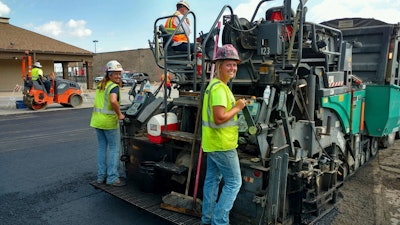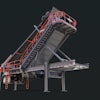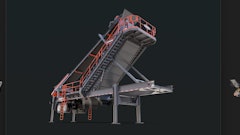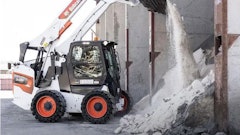
The share of women working in construction trades in 2018 was the highest in twenty years, but women remain strongly underrepresented in the trades: fewer than one in twenty (3.4%) of construction trades workers in 2018 were women.
Female careers in the construction industry have remained shockingly low for decades, due in large part to the discrimination that blocks women from entering and staying in the field. Sexual harassment and hostility, lack of mentors and stereotyped assumptions about women’s capabilities all contribute to the problem.
So what’s the solution? Women represent a huge segment of workers that are largely untapped for careers in construction. Since 84% of construction companies report not being able to find enough laborers for the work they have in their pipeline, we need to work together to encourage women to try these careers, not deter them with the usual stigmas.
1. Focus on the Benefits
Construction trades provide well-paid jobs that do not require a college degree. In 2018, women working full-time in construction and extraction occupations made $785 per week at the median, compared with $834 for men. The gender wage gap in construction is more narrow than for women in the general workplace. While women overall earn 81 cents for every dollar earned by a man, women in construction make 94 cents for every dollar earned by a men.
Careers in construction can also offer women job security, competitive benefits, paid vacation and the satisfaction of building something that really matters to the communities in which they live. We should focus on the benefits of these careers instead of the potential hardships.
2. Change the Perception
There is a longstanding perception that all jobs in the industry require extensive physical labor in frequently challenging and/or dangerous conditions. And while there are individuals, including women, who are open to this type of work, today’s workforce is less enamored with these types of roles. However, the growing presence of technology creates many new job opportunities that women may excel at, plus there are managerial positions available such as project managers, crew foremen, safety managers and more. Construction is no longer all about manual labor and the idea that women are not physically strong enough to work in it.
3. Provide Comprehensive Training
There is unfortunately a psychological barrier for women to enter a job that they feel is a man’s job. But, women need to know that careers in construction are not just reserved for men. Jobs are for people and companies just need to train the right ones, regardless of gender.
What many workers, including women don’t realize is that construction careers are accessible through apprenticeships, which provide paid on-the-job learning combined with post-secondary classroom instruction. Women-focused pre-apprenticeship programs have been successful in increasing women’s access and success in construction careers.
Read Next: Clear A Path to Bring More Women Into Construction
Companies can also lower the mental barrier of the job and consider creating an all-women’s crew. This can help new hires feel more comfortable learning a sometimes-challenging new skill. Women can learn from each other and not feel the pressure of needing to be perfect in front of their maybe more-experienced male colleagues.
These jobs take work ethic, commitment and determination. If your potential candidate has those things, you can teach them the rest.
4. Advocate for Change
In order to effectively create change, you need to start young. Children are being exposed to potential careers as young as kindergarten and the industry needs to start tailoring their message to young girls, not just the boys. We need to change the lingering outdated perceptions that exist of what it means to work in construction, not just amongst women, but amongst young people in general as those that influence them and their career choices are their parents and teachers.
The industry also needs to advocate for equality. When women do enter these careers, company leadership needs to make sure they are being respected. Ensure that there are female Personal Protective Equipment (PPE) options in your catalogue which includes work clothing that fits properly and enables women to do their jobs comfortably, well and safely. Although this might seem basic, there are too many companies in the industry which do not yet do this.
The industry must ensure that it has a culture that does not accept sexism, discrimination or bullying and we must challenge every instance and form of harassment. Women working in construction should be treated equally to their male colleagues, who should not have to face discrimination, sexism or bullying either.
5. Support Career Advancement
Companies need to focus on rewarding and promoting individuals based on results, rather than perpetuating a gender bias which may exist in terms of deciding which individuals to promote. This can change by creating a mentoring culture where senior staff members are encouraged to invest time in women within the company so they can be brought through to the top ranks.
Watch: All-Female Paving Crew Crushes Construction Industry Stereotypes
Ultimately, those companies that demonstrate a genuine commitment to a diverse workforce will attract the most talented and forward-looking employees. It’s not just important for women to champion this cause, it’s important for everyone in this growing industry to bring in all the talent we can. Without skilled workers, the opportunity for construction to thrive will be stifled.




















